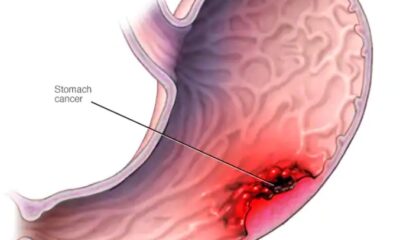IN-THE-NEWS
Customs Seizes N3bn Worth Of Cannabis Imported From Canada At Tincan Port

Continue Reading
IN-THE-NEWS
Nuclear war expert reveals safest part of the world to live after atomic bomb blast if WW3 broke out –
IN-THE-NEWS
China Blasts ‘Destructive’ US in Brutal Response as Tariff War Heats Up –
IN-THE-NEWS
Vladimir Putin Offers to End War If Trump Agrees to This One Shocking Deal –
-

 METRO11 months ago
METRO11 months agoSome Cruise Ship Passengers Are Just Realizing What Upside-Down Pineapple Signs On Cabin Doors Mean
-

 SPORTS11 months ago
SPORTS11 months agoTennis – Wimbledon: The program and results of the French men and women in the qualifications
-

 IN-THE-NEWS6 months ago
IN-THE-NEWS6 months agoМеруерт Түсіпбаева әскердегі әлімжеттікті тоқтатуды талап етті
-

 SPORTS10 months ago
SPORTS10 months agoA Mexican boxer has already denounced Khelif’s brutal blows: This is what her face looked like
-

 SPORTS11 months ago
SPORTS11 months agoColombia advances to the final, beating Uruguay
-

 HEALTH & LIFESTYLE11 months ago
HEALTH & LIFESTYLE11 months agoStomach cancer kills, avoid doing the following
-

 IN-THE-NEWS6 months ago
IN-THE-NEWS6 months agoҚызылордада инвестор қаржысына жаңа жылу-электр орталығы салынуда
-

 HEALTH & LIFESTYLE10 months ago
HEALTH & LIFESTYLE10 months agoDangers Associated With Eating Crayfish That Everyone Should Know



